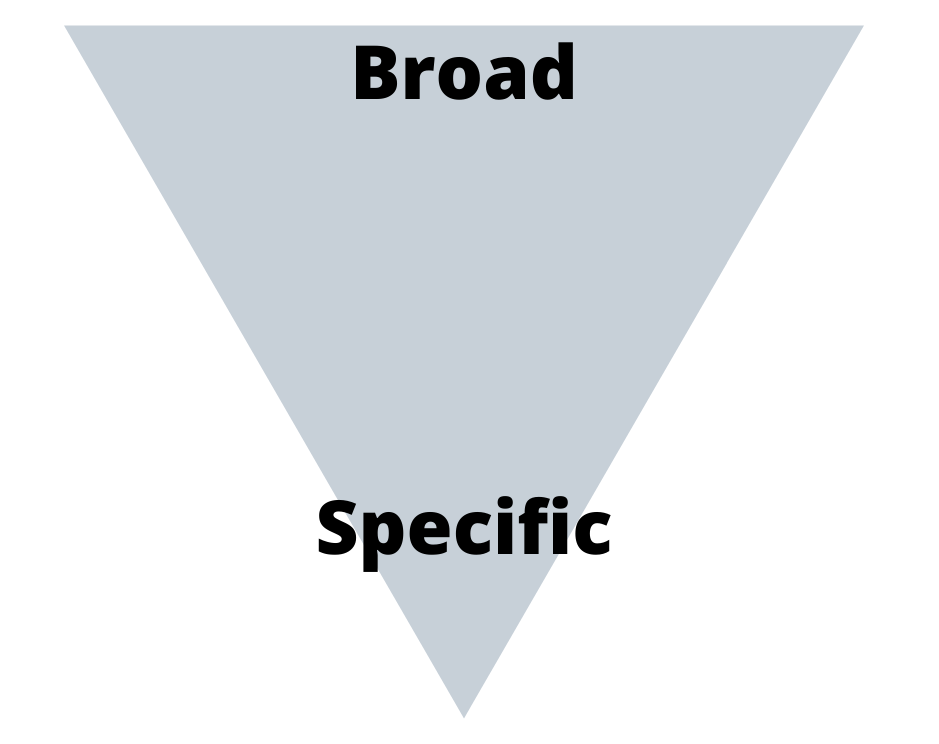Legal research can be tricky. Most of us learn it by doing it, without much guidance. Accordingly, we never wait to think about the process we apply while researching. However, I suppose this is not true for all people. Many law students struggle with legal research and have no guidance at their disposal. In this post, I will discuss a step-by-step process of legal research that I follow.
1. What is legal research?
Black’s law dictionary defines legal research as “the finding and assembling of authorities that bear on a question of law.” This simply means identifying the statutes, regulations, rules, case-laws or academic authorities applicable to a factual scenario.
There are several reasons to conduct legal research. For instance, advocates conduct legal research to build claims or defences for their clients, students conduct legal research for class presentations or moot courts, think tanks conduct legal research for presenting proposals on policy issues, etc.
2. Things to remember before starting research
Before you can start legal research, you should check the following boxes:
Get your facts straight

You should gather all the relevant facts before you can jump into the law. This includes the why, how, when, etc, of the issue. All these facts are relevant for giving direction to your legal research. For instance, if you wish to write on the legal validity of the Armed Forces (Special Powers) Act, 1958, a.k.a. AFSPA, you should first check the background of the Act, reasons why it was brought in to force, etc. Doing this background research will also give you more perspective on the issue and may allow you to appreciate the practical relevance of the law.
Identify the legal issue
You will not be able to go far in your research if you fail to identify exactly what you are looking for. For this, you should think about the facts carefully to identify what problem you wish to tackle. While the exact issue that you identify might go through some modifications, as you go deeper in your research, you should have some starting point.
3. Where to conduct research?
University Library

If you are at your university, you can consider starting your research by reading some physical books and articles available on the issue, in the university library.
Search Engines

You should always do a ‘google search’ to find out all the available literature on the issue. While going through google, try to be as comprehensive as possible. Don’t just skim through the links provided on the first page and start writing. Keep opening new pages until you stop finding anything remotely relevant to your issue.
University’s Remote Resources

In addition to the above, you should make full use of your universities’ online resources. Law Universities, across the globe, spend crores of Rupees on acquiring the best research tools for their students. These tools include but are not limited to, HeinOnline, Jstor, Brill, Westlaw, SCCOnline, Manupatra, Oxford Database, etc. Now it is possible that your university doesn’t provide you with all these. In such a case, you should try to pull some strings and talk to your friends at top colleges to give you these resources temporarily (or permanently, based on your relationship, of course). In most cases, people are happy to give their friends these resources for some time, but obviously don’t feel dejected if your friend says ‘no’, there are other options, as I explain in the next point. The good news is that many universities in India subscribe to these expensive tools, so if you have some contacts, someone should come around to help you. As a matter of fact, all National Law Universities and top private colleges including Jindal, Symbiosis, Nirma etc. subscribe to these tools. So, I would suggest that you build cross-university friendships and help each other.
Free Websites Online

In case you are not able to get your hand at university resources, don’t feel low. Some websites on the internet do provide access to quality publications for free. These pirate websites include Sci-Hub, Libgen, among others. At the moment, their legal status is sub-judice in India. There is an ongoing case against these websites in the Delhi High Court. As long as they are not officially banned from the country, I guess, it’s okay for me to talk about them on my blog. Several media outlets have covered this issue extensively. Accordingly, I think it would be a good idea for you to google it and check out the details. Additionally, you should also google how these websites function and how you can use them.
4. My 6 principles to legal research
While there are different ways to go about research, I follow the steps mentioned below. You can find your own method because approaches to legal research are not written down in black and white.
Principle 1: Read up on the broad theme
While you may believe that you have a good knowledge of the topic, it’s never a bad idea to go back to the basics. Start reading on the broad theme where your topic falls. For this, you can refer to credible encyclopedias, treatises, course books, etc. These readings help you avoid making any mistakes on basics in the future. In addition, reading the basics can give you a fresh perspective on the issue. For instance, if you wish to write on “why barring women entry in Sabrimala Temple is unconstitutional,” you should start by broadly reading about fundamental rights and religious freedoms in India, from a good constitutional law book like Prof. M.P. Jain’s Indian Constitutional Law, or Constitutional Law of India by Prof. H.M. Seervai. In fact, I wrote an article on the Sabarimala Issue back in 2018, along with Stuti Bhargava, and read parts of both the books mentioned above, when starting out. Basic readings can also include case laws on the topic you’re working on.
Principle 2: Transitioning from the broad theme to the specific issue

After reading up on the basic materials, you should slowly transition to the specific topic you’re dealing with. Once you start with broad study, usually this transition is natural. However, if it doesn’t naturally happen to you, you can consider transitioning after thematic readings from 2 – 3 good books, cases or articles.
There is nothing special you need to do when transitioning. Simply start searching for keywords related to your topic and start reading related articles on google or other websites that I mentioned in section 3 above.
Principle 3: Reading comparative material
You should aim at taking a holistic approach while writing an article. For this, you should read comparative literature along with domestic publications. This would give you two specific advantages. First, you would be able to come up with better and more tested solutions to the problems you’re addressing; and second, your article would be more authoritative and thoroughly analyzed because you’re doing a cross-jurisdictional analysis.

In fact, your comparative study need not be limited to a cross-jurisdictional study. You can also look at the treatment of comparable statutes, regulations and cases by the government and courts. For instance, if you are researching on ‘impartiality of arbitrator under Arbitration and Conciliation Act of India, 1996’, you can consider widening your horizon by looking at how arbitrator impartiality has been treated in the MSME Act or the Arbitration Act of 1940 or other comparable legislations, where a neutral third party settles disputes.
Principle 4: Managing and Organizing Research

Managing and organizing your research is as crucial as finding it. For every article, you write, create a separate folder on your computer. You should name the materials in such a manner that you’re able to identify what is what, when you need it. For instance, I always create several folders and sub-folders to organize everything I find. I tend to create sub-folders based on the potential sub-headings of my articles. This prevents wastage of time and energy to track the material I need later on. You can also consider creating a word document and keeping the important excerpts from each article in it. To be honest, everyone organizes and manages their research differently. You can choose to do whatever works for you.
Principle 5: Draft an outline of your article

Once you have done some reading, you should draft a rough outline of your article. This outline will give some research direction and certainty. You can continue to modify this outline as you come across fresh research. However, this outline is crucial at preventing you from going all over the place with your research.
Principle 6: Research is a continuous process

You should remember that research is a continuous process. Thus, throughout your journey of writing an article, you should continue to look for better research. Additionally, it also means that you can start creating the outline of your article, even if you feel that you don’t have all the research available at your disposal. As you write, you will continue to encounter new case laws, regulations, etc. Therefore, you should keep an open mind.

